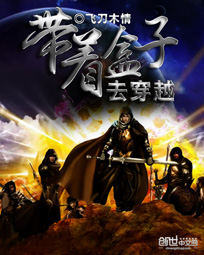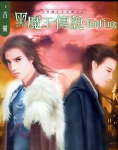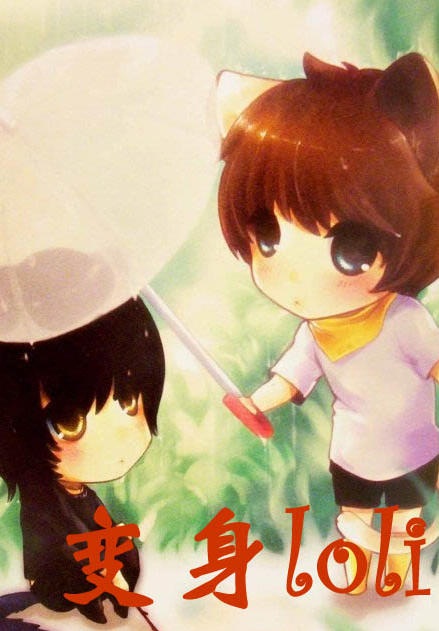wgolding.lordoftheflies-第51部分
按键盘上方向键 ← 或 → 可快速上下翻页,按键盘上的 Enter 键可回到本书目录页,按键盘上方向键 ↑ 可回到本页顶部!
————未阅读完?加入书签已便下次继续阅读!
How romantically it starts! Several bunches of boys are being evacuated during a war。 Their plane is shot down; but the 〃tube〃 in which they are packed is released; falls on an island; and having peppered them over the jungle slides into the sea。 None of them are hurt; and presently they collect and prepare to have a high old time。 A most improbable start But Mr。 Golding's magic is already at work and he persuades us to accept it。 And though the situation is improbable the boys are not。 He understands them thoroughly; partly through innate sympathy; partly because he has spent much of his Me teaching。 He makes us feel at once that we are with real human beings; even if they are small ones; and thus lays a solid foundation for the horrors to e。
Meet three boys。
Ralph is aged a little over twelve。 He is fair and well built; might grow into a boxer but never into a devil; for he
1。 Mr。 Forster's Introduction appears in Lord of the Flies; New York: Coward…McCann; Inc。; 1962。 It is reprinted here by permission of the publisher。
is sunny and decent; sensible; considerate。 He doesn't understand a lot; but has two things clear: firstly; they will soon be rescued…why; his daddy is in the Navy!…and secondly; until they are rescued they must hang together。 It is he who finds the conch and arranges that when there is a meeting he who holds the conch shall speak。 He is chosen as leader。 He is democracy。 And as long as the conch remains; there is some semblance of cooperation。 But it gets smashed。
Meet Piggy。
Piggy is stout; asthmatic; shortsighted; underprivileged and wise。 He is the brains of the party。 It is the lenses of his spectacles that kindle fire。 He also possesses the wisdom of the heart。 He is loyal to Ralph; and tries to stop him from making mistakes; for he knows where mistakes may lead to in an unknown island。 He knows that nothing is safe; nothing is neatly ticketed。 He is the human spirit; aware that the universe has not been created for his convenience;2 and doing the best he can。 And as long as he survives there is some semblance of intelligence。 But he too gets smashed。 He hurtles through the air under a rock dislodged by savages。 His skull cracks and his brains spill out。
Meet Jack。
Jack is head of a choir…a bizarre assignment considering his destiny。 He marches them two and two up the sundrenched beach。 He loves adventure; excitement; foraging in groups; orders when issued by himself; and though he does not yet know it and shrinks from it the first time; he loves shedding blood。 Ralph he rather likes; and the liking is mutual。 Piggy he despises and insults。 He is dictatorship versus democracy。 It is possible to read the book at a political level; and to see in its tragic trend the tragedy of our inter…war world。 There is no doubt as to whose side the author is on here。 He is on Ralph's。 But if one shifts the
2。While there is no question as to Piggy's intelligence; one must not overestimate the range of his awareness。 His physical deficiencies suggest the weakness in his point of view。 Piggy denies the existence of the beast and insists that 〃life is scientific〃; even after the triumph of the hunters; he expects to enter Jack's fortress and reason with him for return or the bifocals。 Like all of Golding's rationalists; Piggy has a one…dimensional view of human nature: he fails to perceive 〃the darkness of man's heart。〃…Eds。
vision to a still deeper level…the psychological…he is on the side of Piggy。 Piggy knows that things mayn't go well because he knows what boys are; and he knows that the island; for all its apparent friendliness; is equivocal。
The hideous accidents that promote the reversion to savagery fill most of the book; and the reader must be left to endure them…and also to embrace them; for somehow or other they are entangled with beauty。 The greatness of the vision transcends what is visible。 At the close; when the boys are duly rescued by the trim British cruiser; we find ourselves on their side。 We have shared their experience and resent the smug cheeriness of their rescuers。 The naval officer is a bit disappointed with what he finds…everyone filthy dirty; swollen bellies; faces daubed with clay; two missing at least and the island afire。 It ought to have been more like Coral Island; he suggests。
Ralph looked at him dumbly。 For a moment he had a fleeting picture of the strange glamour that had once invested the beaches。 But the island was scorched up like dead wood…Simon was dead…and Jack had 。 ; 。 The tears began to flow and sobs shook him。 He gave himself up to them now for the first time on the island; great; shuddering spasms of grief that seemed to wrench his whole body。 His voice rose under the black smoke before the burning wreckage of the island; and infected by that emotion; the other little boys began to shake and sob too。 And in the middle of them; with filthy body; matted hair; and unwiped nose; Ralph wept for the end of innocence; the darkness of man's heart; and the fall through the air of the true; wise friend called Piggy。
This passage…so pathetic…is also revealing。 Phrases like 〃the end of innocence〃 and 〃the darkness of man's heart〃 show us the author's attitude more clearly than has appeared hitherto。 He believes in the Fall of Man and perhaps in Original Sin。 Or if he does not exactly believe; he fears; the same fear infects his second novel; a difficult and profound work called The Inheritors。 Here the innocent (the boys as it were) are Neanderthal Man; and the corrupters are Homo Sapiens; our own ancestors; who eat other animals; discover intoxicants; and destroy。 Similar notions occur in his other novels。
Thus his attitude approaches the Christian: we are all born in sin; or will all lapse into it。 But he does not plete the Christian attitude; for the reason that he never introduces the idea of a Redeemer。 When a deity does appear; he is the Lord of the Flies; Beelzebub; and he sends a messenger to prepare his way before him。
The approach of doom is gradual。 When the little boys land they are delighted to find that there are no grown…ups about。 Ralph stands on his head with joy; and led by him they have a short period of happiness。 Soon problems arise; work has to be assigned and executed; and Ralph now feels 〃we must make a good job of this; as grown…ups would; we mustn't let them down。〃 Problems increase and bee terrifying。 In his desperation the child cries; 〃If only they could get a message to us; if only they could send us something grown…up 。。。 a sign or something。〃 And they do。 They send something grown…up。 A dead parachutist floats down from the upper air; where they have been killing each other; is carried this way and that by the gentle winds; and hooks onto the top of the island。
This is not the end of the horrors。 But it is the supreme irony。 And it remains with us when the breezy rescuers arrive at the close and wonder why a better show wasn't put up。
Lord of the Flies is a very serious book which has to be introduced seriously。 The danger of such an introduction is that it may suggest that the book is stodgy。 It is not。 It is written with taste and liveliness; the talk is natural; the descriptions of scenery enchanting。 It is certainly not a forting book。 But it may help a few grown…ups to be less placent and more passionate; to support Ralph; respect Piggy; control Jack and lighten a little the darkness of man's heart。 At the present moment (if I may speak personally) it is respect for Piggy that seems needed most I do not find it in our leaders。
King's College
Cambridge May 14;
1962
Simon1
DONALD R。 SPANGLER
IN Lord of the Flies the character Simon has about him a general aura of saintliness。 Critics have suggested that Simon is a Christ figure。 And William Golding; on the artist's part; has said that he intended to present a Christ figure in the novel; intimating that Simon is the character he meant so to present。2 Accordingly; it might be of value to examine what textual evidence there is to document the function of Simon as a Christ or 〃saint〃 in Lord of the Flies。
Even before identified by name Simon is introduced as the choir boy who had fainted;


![[LOL]爱的双排封面](http://www.9wshu.net/cover/12/12832.jpg)



